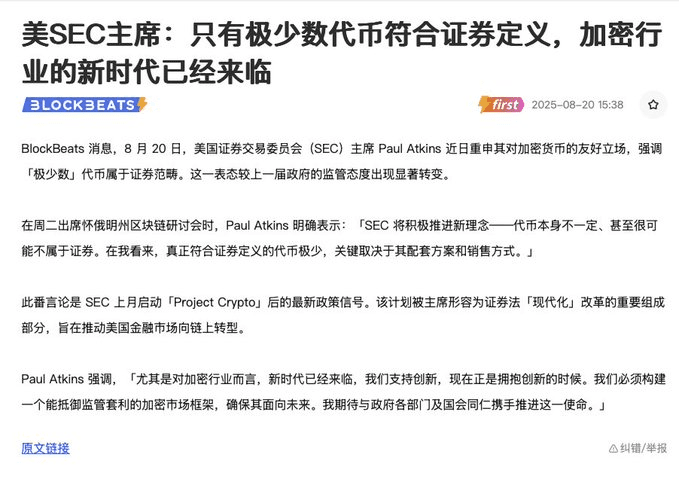Recently, the DeSci life sciences track in the US stock market has been incredibly heated, and even the renowned V God from the crypto circle is paying close attention. From the development trend, it is highly likely that China's DeSci track will produce a cryptocurrency ranked in the top 50 by market capitalization in the future.
Currently, the leading projects in this track are BIO and TRAC, and I will elaborate on them below.
DeSci, or 'Decentralized Science', essentially leverages blockchain technology to break down many barriers that exist in traditional research fields.
DeSci attempts to provide solutions to challenges such as the long monetization cycle of research outcomes, frequent funding shortages, lack of transparency in fund allocation, difficulties in data sharing, and excessive reliance on institutional releases of research results.
Its core aims to tackle three key issues: the efficiency of fund utilization, fair distribution of benefits, and building trust within the industry, ultimately achieving the reconstruction of the 'production relations' in scientific research.
Let's talk about BIO first. BIO is the native governance token of BIO Protocol, which is a pioneering project in the DeSci field.
This project received investment from Binance Labs, quickly gaining influence. The main focus of BIO Protocol is to support the creation and management of decentralized autonomous organizations (DAOs) in the biotechnology field, thereby assisting the early stages of scientific research.
Within this system, stakeholders can fund, develop, and commercialize intellectual property. It is not just a fundraising platform, but is dedicated to creating a comprehensive ecosystem where biotechnology projects can be incubated, managed, and supported, while also accessing various resources in a decentralized environment.
The role of the BIO token is significant. Those who hold BIO tokens can vote to approve new BioDAOs (Decentralized Biological Organizations, which are the specific forms of DeSci in the biomedical field) and have the right to purchase BioDAO tokens at an early stage.
In addition, the BIO Protocol will provide support to approved BioDAOs through fundraising and liquidity management. When BioDAOs achieve important milestones such as issuing intellectual property tokens or conducting decentralized clinical trials, they can also receive rewards through the 'Bio/Acc Rewards' program.
From the perspective of market performance and development potential, BIO has its advantages. After it was launched on Binance Launchpool, it received more attention. Currently, BIO plans to initiate 15-20 DAO organizations early in the year, with a relatively high initial market value, and there are certain expectations in the market for this new token.
Additionally, the team behind BIO has participated in the early biomedical crypto platform Molecule and built the largest decentralized community in the longevity science field, VitaDAO, possessing extensive experience.
Now let's take a look at TRAC. TRAC is the token for the TrueFi project. Although TrueFi initially focused more on the decentralized finance (DeFi) lending sector, some of its characteristics and advantages have also shown potential in the DeSci track.
TrueFi has built a credit rating system that can provide credit ratings for borrowers, which is very practical in the funding and lending scenarios of DeSci projects.
Because DeSci projects often require significant capital investment, and have long research cycles and high risks, a credit rating system like this allows investors to better assess risks and decide whether to provide funding.
Moreover, TrueFi's lending model is relatively flexible, allowing borrowers to apply for loans of different amounts and terms based on their project needs and development stages.
This is crucial for DeSci projects, as different research projects have varying funding needs and return cycles. Additionally, the TRAC token plays important roles such as governance within the entire TrueFi ecosystem, allowing users who hold TRAC to participate in decision-making and influence the direction of projects.
From the perspective of the overall prospects of the DeSci track, the market is generally very optimistic. A report released by Binance predicts that by 2030, the DeSci market size will reach $750 billion. More and more capital and talent are beginning to flow into this track; on one hand, it has enormous development potential, and on the other hand, it indeed has the potential to solve some long-standing pain points in traditional research fields.
In China, with the continuous development of blockchain technology and ongoing investments in the life sciences field, the DeSci track has unique development conditions.
There is a large research talent pool in the country, along with a positive attitude towards the application of innovative technologies. Once breakthroughs are achieved in the DeSci field, it is easy to form economies of scale.
Therefore, the emergence of a cryptocurrency ranked in the top 50 by market capitalization is not a far-fetched dream. For investors and those interested in this field, the DeSci life sciences track is undoubtedly a focus area, and the two leading projects, BIO and TRAC, require continuous tracking and research.
#REVABinanceTGE #PowellWatch #ETHInstitutionalFlows
Stay tuned: ogn meme pare

